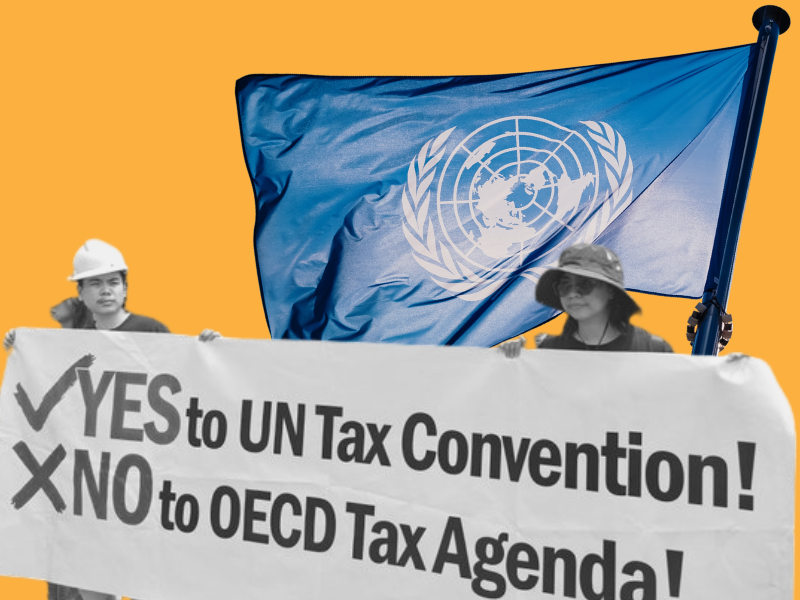As every year, since September, the United Nations General Assembly convenes in New York for its 78th session. In these weeks, the speeches of Latin American leaders have made headlines, but amidst the intense agenda of discussions on international politics and human rights, a scenario with clear opportunities to promote tax cooperation between countries and regions stands out.
To discuss this opportunity, we must refer back to December 30, 2022. At that time, a group of countries, notably representatives from African governments, managed to initiate intergovernmental debates at the UN General Assembly to explore ways to improve the inclusivity and effectiveness of international cooperation in fiscal matters. The Secretary-General also committed to preparing a report proposing measures that could be adopted.
Meanwhile, in recent months, countries in Latin America and the Caribbean have made significant progress on the same issue. The First Ministerial Summit for Inclusive, Sustainable, and Equitable Global Taxation, held in late July in Cartagena, resulted in the Regional Platform for Tax Cooperation for this region and promises to be a permanent forum to discuss and coordinate regional tax-related matters.
The Latin American precedent strengthens the process led by the UN, as the mentioned report has already been published and, as happened in our region, emphasizes the need to reinforce international cooperation in fiscal matters and reform the international tax system to combat tax evasion, avoidance, and illicit financial flows. This is crucial for building fairer, more inclusive, and effective fiscal systems, essential to providing states with funds to promote human rights and address climate crises.
What's Happening at the UN?
Based on this report, the African Union (especially Egypt, Ghana, Nigeria, and South Africa) pledged to draft a resolution supporting some of the options presented in the document. The resolution will be discussed this October in the UN General Assembly's Second Committee (responsible for economic and financial matters), where negotiations on the next steps for a possible UN Tax Convention are expected to take place.
In civil society and among the governments that supported the Latin American and Caribbean Regional Platform for Tax Cooperation, there is anticipation. In fact, the Colombian government, which assumes the pro tempore presidency of the Platform until July 2024, held an event to officially launch this space with a joint dialogue between officials from the member countries' tax administrations and their missions to the United Nations, as well as African representatives.
Maria Fernanda Valdés, Technical Vice Minister of the Ministry of Finance and Public Credit of Colombia, mentioned that, in light of the process taking place at the UN General Assembly, it is important for Latin America and African countries to unite around international tax cooperation. Delegations from Africa set an example of how to create and sustain unified positions in international discussions.
In this regard, Chenai Mukumba, Executive Director of the Africa Tax Justice Network, states that her continent has been insisting for more than two decades on the need to build a much more effective international fiscal cooperation, with a much more relevant role for the United Nations in the global tax architecture. In this sense, she says that several points from the report presented by the Secretary-General are noteworthy: 1. recognizing that it is imperative for the international tax system to reflect principles that are universally applicable and preserve notions of equal treatment for all countries, as current tax discussions are being led by the OECD with a hierarchical system that leaves many countries out. The other important aspect is that the conversation on tax cooperation, happening in many scenarios simultaneously, should address other issues, such as social inequality, in a unified manner and bring them collectively to the UN.
But negotiations at the United Nations are not easy. Magdalena Sepúlveda, Director of the Global Initiative for Economic, Social and Cultural Rights (GI-ESCR) and member of our Committee of Experts, states that the Secretary-General's report marks a milestone in international cooperation in taxation since it places the need for the United Nations to be the framework for a democratic and inclusive process on tax issues at the center. However, Sepúlveda says that alliances and political consensus among countries on the alternatives proposed in the report are needed, and that takes time. "The creation of an open-ended intergovernmental committee to discuss the options we have for the global platform seems to be the most appropriate,” she concludes.










